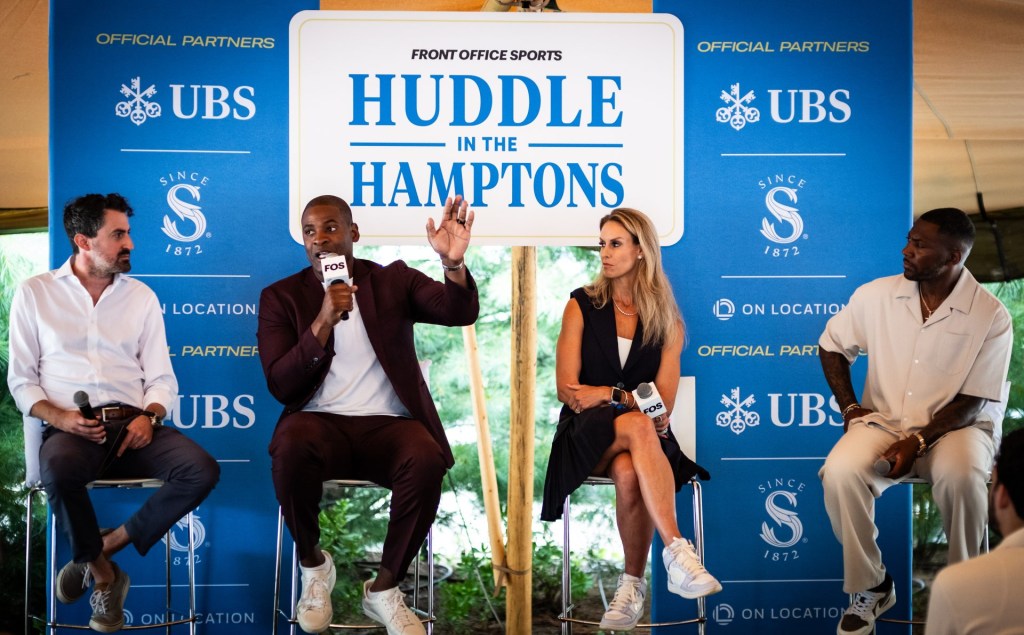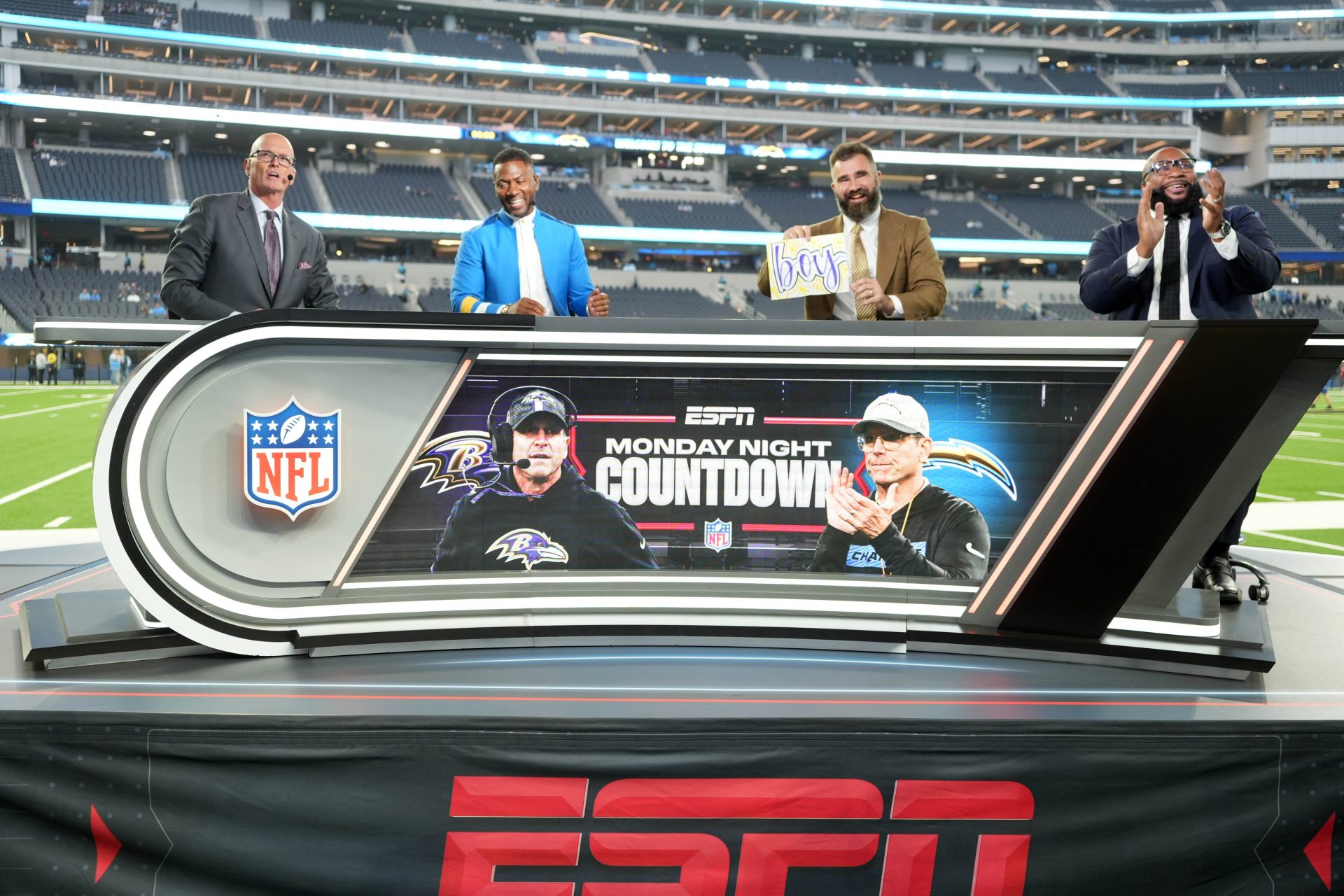Last Friday, we gathered more than 200 sports, business, and tech leaders in the Hamptons for a day of panels and pickleball. We opened with a stellar conversation with three former pro athletes who are all thriving off the field: 11-year NFL defensive end turned UBS executive Wale Ogunleye, Super Bowl champion turned ESPN analyst Ryan Clark, and USWNT and NWSL alum turned NWSL team owner Leslie Osborne.
So what’s the biggest bleeding-edge trend on all their minds? Ownership.
Osborne launched Bay FC, the NWSL’s 14th club, with fellow USWNT alums Brandi Chastain, Aly Wagner, and Danielle Slaton, but she gave first-mover credit to Angel City FC, launched in 2020 by actress Natalie Portman, venture capitalist Kara Nortman, and media exec Julie Uhrman, plus soccer legends Mia Hamm, Abby Wambach, and Julie Foudy as investors. “It was a smart cap table to put together,” Osborne said. “A lot of heads turned.”
Angel City quickly went from star-studded start-up to business powerhouse. Its $30 million in annual revenue far outstrips any other NWSL team, and its $250 million valuation when it was recently sold to Bob Iger and Willow Bay set a record in women’s sports at the time.
Soccer is where the celebrity ownership trend is moving the fastest, in part because of the prohibitive prices in the NFL, NBA, and MLB. “Being at UBS, I’ve seen the value of these teams go,” Ogunleye said. “We’re getting interest from clients that want to participate and want to own these teams. From a personal standpoint, me and my wife are priced out. … The PE firms have taken the valuations of these teams to a level that, if you own the team, you’re happy, but if you want to get on the ground level … it’s going to cost you a significant chunk of your money to get in now.”
First-time team owners are also flocking to soccer because U.S. leagues such as MLS and the NWSL are still rapidly expanding. “It’s a smart business move, not only for them, but for the clubs that are being formed,” Osborne said. “If you have athletes who have succeeded at the highest level possible, that have seen both sides on and off the field, it’s only going to help both on the business side but also as an investment side. So there is more to come.”
The value of owning a piece of a pro sports team is obvious to the athlete or celebrity investor: Valuations are surging across the board (and not just in the big four pro men’s leagues anymore), and you are likely to get a great return on your investment. The value of celebrity owners to the team or league goes beyond the obvious star power and publicity—the team or league gains access to the famous person’s entire circle as they recruit famous friends.
MLS commissioner Don Garber joined us for a conversation and spent a large chunk of his time raving about what celebrity owners like Inter Miami’s David Beckham, LAFC’s Will Ferrell, and Nashville SC’s Reese Witherspoon have done for the league.
“Our best example is Beckham,” Garber gushed. “He is an active owner. He comes to board meetings. He has a global perspective. He works hard, and he gives us the benefit of his gazillion Instagram followers.”
Ferrell is another of Garber’s favorite examples. “He goes to games, he brings his friends to games, he talks to the players, and he does it in a way that’s very beneficial to us.” Inter Miami star Leo Messi already has an ownership stake in his team promised to him upon retirement if he wants to buy. (That’s if he ever forgives Garber for suspending him for skipping the All-Star Game; “I don’t think he wants to talk to me,” Garber revealed.)
Everyone in sports wants to be an owner—and not just an owner of teams.
In the biggest news of the past week, two of the country’s most important sports entities decided broadcast-rights agreements aren’t enough. ESPN and the NFL announced a complicated pact in which the league is set to own 10% of ESPN in exchange for NFL Network, NFL Fantasy Football, and the rights to the RedZone brand—if and when the deal clears regulatory approvals.
That is a huge shift that bears repeating: The NFL will take a 10% stake in ESPN. And it’s just the latest, loudest example of leagues taking ownership stakes in media properties, or vice-versa, as part of their broadcast-rights deals: Fox and ESPN own stakes in UFL, ESPN took a stake in PLL, TNT took a stake in Unrivaled, and Fox bought a 33% stake in IndyCar.
So, current and former pro athletes see it, Hollywood celebs see it, pro sports leagues see it, and TV giants see it: Income isn’t enough anymore. You need equity.


